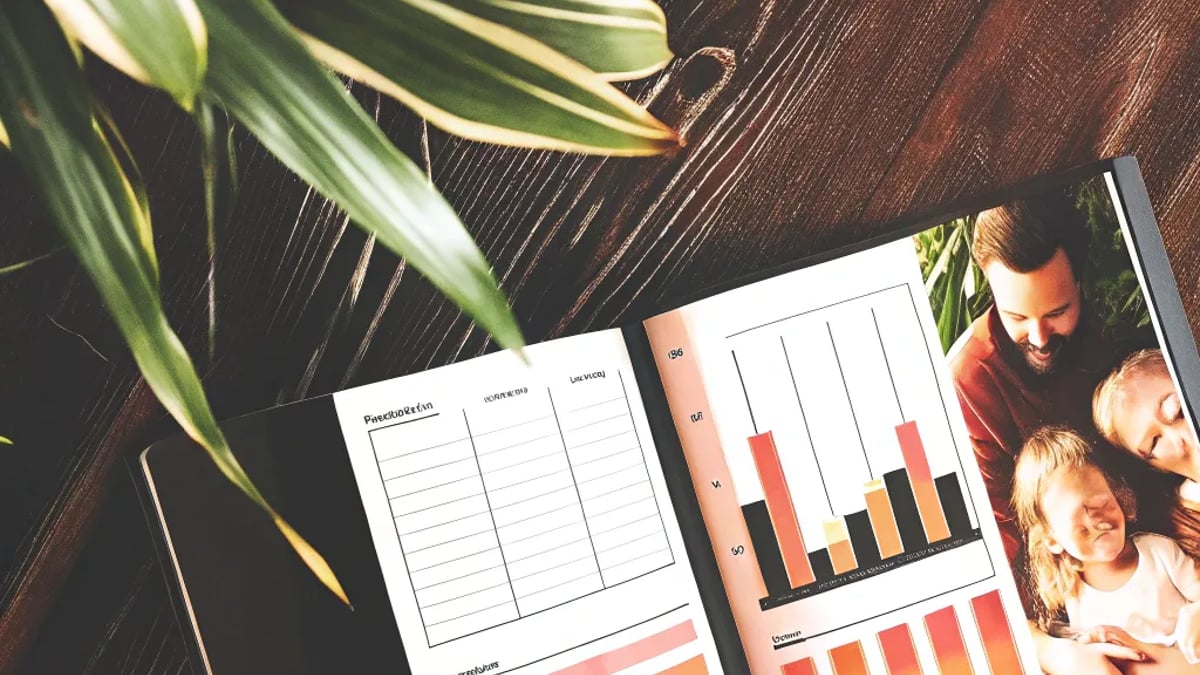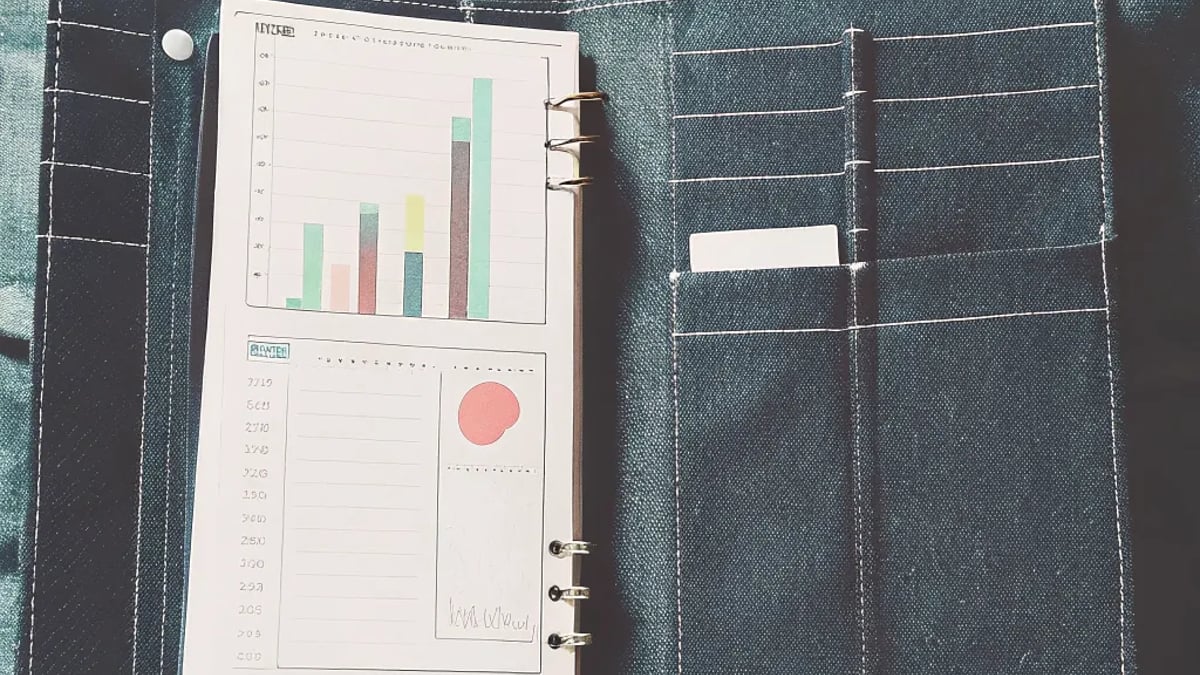
Creating a budget that works isn't just about tracking numbers—it's about finding a system that aligns with your life and financial goals. Despite the abundance of budget templates available, many people struggle to find one that sticks. Let's explore budget templates that actually work and how to customize them to your financial reality.
Why Most Budget Templates Fail
We've all been there—downloading a pristine budget template with the best intentions, only to abandon it by month's end. According to a Reddit user who created a popular budgeting spreadsheet, "Most templates assume you already know how to budget, but many people need guidance on the process itself, not just the tool."
Common reasons budget templates fail include:
- Too complicated to maintain daily
- Unrealistic categories that don't match your spending habits
- Inflexible structures that break when life happens
- No visual feedback to keep you motivated
- Requiring too much manual data entry

The key to a successful budget isn't finding the perfect template—it's finding one you'll actually use consistently.
Essential Elements of Effective Budget Templates
After reviewing dozens of templates and user experiences, I've identified critical components that make budget templates work in real life:
1. Simplicity First
The most successful templates prioritize ease of use over complexity. As one Reddit user commented on a popular template, "I've been using the 2021 version, it's really nice... simple enough that I actually keep up with it."
Effective templates typically include:
- Clear income and expense categories
- Minimal manual data entry
- Automated calculations
- Visual summaries you can understand at a glance

2. Flexibility That Adapts to Real Life
Life rarely follows our plans exactly. Good budget templates allow for:
- Adjustable categories that match your specific spending
- Room for irregular expenses
- Easy updates when priorities change
- The ability to roll over funds between months
3. Visual Feedback That Motivates
According to NerdWallet's budget resources, visual feedback significantly increases user engagement with budgeting tools. Effective templates include:
- Color-coded spending categories
- Progress bars for savings goals
- Simple charts showing spending patterns
- Month-to-month comparisons
Top Budget Templates Worth Trying
1. The 50/30/20 Template

NerdWallet's free monthly budget worksheet uses the popular 50/30/20 rule—allocating 50% of income to needs, 30% to wants, and 20% to savings and debt repayment.
Who it's best for: Beginners who need a simple framework and aren't ready for detailed category tracking.
Pros:
- Simple conceptual framework
- Focuses on big-picture financial health
- Less time-intensive than detailed tracking
Cons:
- May be too broad for those with specific savings goals
- Doesn't help identify specific spending leaks
2. The "Budget for Beginners" Spreadsheet
A viral Reddit spreadsheet created specifically for "people who don't know how to budget" has gone through multiple iterations based on user feedback. The latest version includes:
- Guided setup for first-time budgeters
- Auto-calculations that show spending trends
- Built-in emergency fund tracking
Who it's best for: True beginners who need guidance on budget creation, not just a template to fill in.
According to the creator, "I wanted something that would actually teach budgeting principles while being simple enough that people wouldn't give up."
3. Microsoft Excel Monthly Budget Template
Microsoft Create offers several free personal budgeting templates that are surprisingly flexible. The monthly budget template includes:
- Detailed expense categories
- Income tracking
- Automatic calculations
- Visual summaries
Who it's best for: Excel-comfortable users who want customization options without starting from scratch.
4. Zero-Based Budget Template
This approach, where every dollar is assigned a job, has gained popularity for its comprehensive control over finances.
Who it's best for: Detail-oriented people who want maximum control over their money and don't mind spending more time on budget management.
How to Make Any Budget Template Actually Work for You
Even the best template will fail without proper implementation. Here's how to make any template stick:
1. Start with a Money Audit
Before selecting a template, track your actual spending for 30 days. One Reddit user shared, "I spent two months just recording everything before attempting to budget, and it was eye-opening how different my actual spending was from what I thought."
This audit helps you choose a template that matches your real financial patterns rather than an idealized version.
2. Customize Categories That Reflect Your Life
The default categories in most templates rarely match everyone's spending patterns. Take time to:
- Rename generic categories to match your specific expenses
- Add categories for your unique spending (pet care, hobbies)
- Remove irrelevant categories that clutter your view
3. Schedule Regular Budget Check-ins
A budget isn't a set-it-and-forget-it tool. According to U.S. News & World Report's article on budgeting templates, the most successful budgeters schedule weekly 15-minute check-ins to update their numbers.
I've found Sunday evenings work well for this quick review, but choose any consistent time that works for your schedule.
4. Embrace Imperfection
Your first budget will be wrong—and that's okay. As one Excel Reddit user advised, "Keep all your data in one place. You can always filter and pivot as needed, but trying to maintain separate spreadsheets for each month creates unnecessary work."
The goal isn't perfection but progress toward better financial awareness.
What About Budgeting Apps vs. Templates?
While this article focuses on templates, many people find success with budgeting apps instead. The principle remains the same: the best system is one you'll actually use.
Apps offer advantages like:
- Automatic transaction imports
- Mobile accessibility
- Preset categories and reports
However, templates provide:
- Complete privacy of financial data
- No subscription costs
- Unlimited customization
Many successful budgeters actually use both—an app for day-to-day tracking and a template for monthly reviews and long-term planning.
How Do I Know If My Budget Template Is Working?
A working budget template should:
- Feel manageable to maintain
- Provide clarity about your financial situation
- Help you make progress toward financial goals
- Reduce financial stress and uncertainty
If your current template misses these marks, it might be time to try a different approach.
Creating Your Own Custom Budget Template
Sometimes the best solution is building your own template. One Reddit user explained their process: "I created my own after trying dozens of templates. It took some work upfront but has saved me countless hours because it perfectly matches how I think about money."
If you're Excel-savvy, consider starting with a basic template and modifying it over time to match your needs perfectly.
The Bottom Line: Consistency Beats Perfection
The most sophisticated budget template won't help if you abandon it after two weeks. The templates that actually work are the ones you'll use consistently, even if they're simpler than financial experts might recommend.
Start with something manageable, build the habit of regular updates, and refine your approach as your financial confidence grows. The goal isn't a perfect budget but a useful tool that helps you make conscious choices about your money.
Disclaimer: This article is for informational purposes only and does not constitute financial advice. Budget templates should be adapted to your individual financial situation and goals.
Tags

About Graham Elwood the Author
Graham Elwood is a seasoned finance journalist with a keen eye for uncovering the most inspirational success stories in the financial sector, particularly those involving groundbreaking startups and visionary entrepreneurs.
Recommended Articles
Finding Reliable Cars at Police Impound Sales
Explore how to find reliable vehicles at police impound sales and learn valuable tips for successful bidding and inspection.
8 Bulk Buys That Can Save You Over Time
Discover 8 bulk buys that can save you money over time, from rice to cleaning supplies. Learn to shop smart and save!
Zepbound for Sleep Apnea? Here’s What to Know
Discover how Zepbound, an FDA-approved medication, may aid in treating sleep apnea linked to obesity through weight loss and lifestyle changes.
Why Everyone Is Buying This Christmas Decoration Early This Year
This year, early Christmas decoration shopping is on the rise, driven by consumer behavior and past supply chain disruptions.
Goodbye Plain Concrete: The Driveway Look Everyone Wants
Transform your dull concrete driveway with stylish alternatives! Discover options that enhance curb appeal and boost your home's value.




